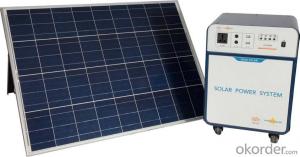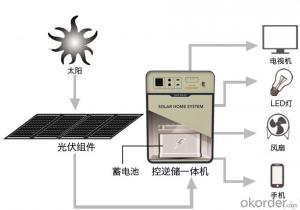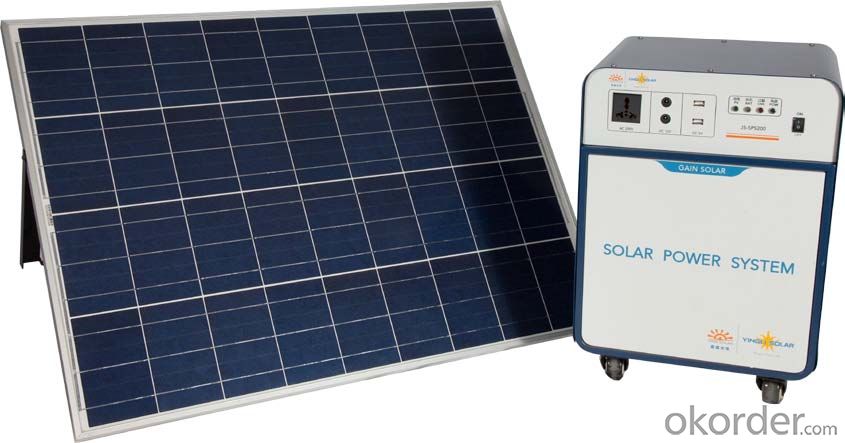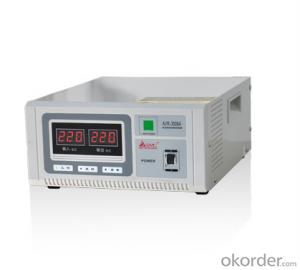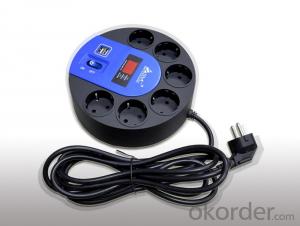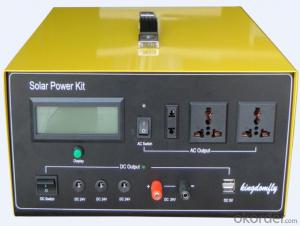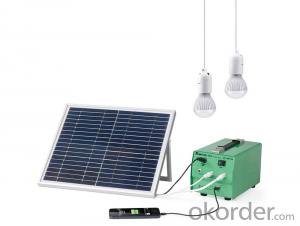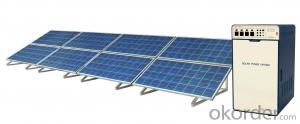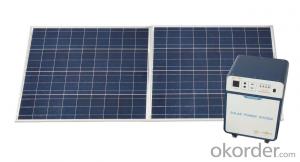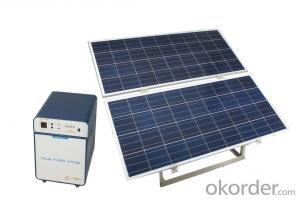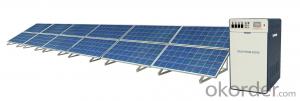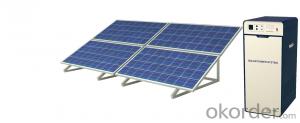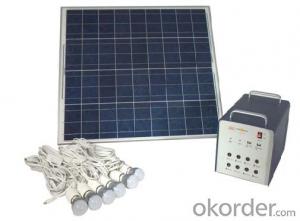Solar Energy Systems Carlisle JS-SPS-200 Off-Grid Solar Power System
- Loading Port:
- Tianjin
- Payment Terms:
- TT OR LC
- Min Order Qty:
- 10 set
- Supply Capability:
- 10000 set/month
OKorder Service Pledge
OKorder Financial Service
You Might Also Like
General Introduction
Solar power system provides alternating current and direct current, which is produced by the modules transforming solar power into power, to home lighting, household appliance and other DC appliance, such as cell phone and laptop.
Solar power system is widely used in area lack of power, for example house power supplying, monitoring, communication base, fire prevention in forest area, pasture and meadow, aquaculture etc.
We are dedicated to provide high quality off-grid PV products and systems to customers and has received a series of certificate, including ISO9001, TUV, UL, CE, CQC and RoHS.
Off-grid Solar Power System
High efficent PV module can produce more power.
Sine wave output is suitable for all kinds of load. Varieties of DC output, let it more
convenient for users.
The multifunction design make it easy to operation and maintenance.
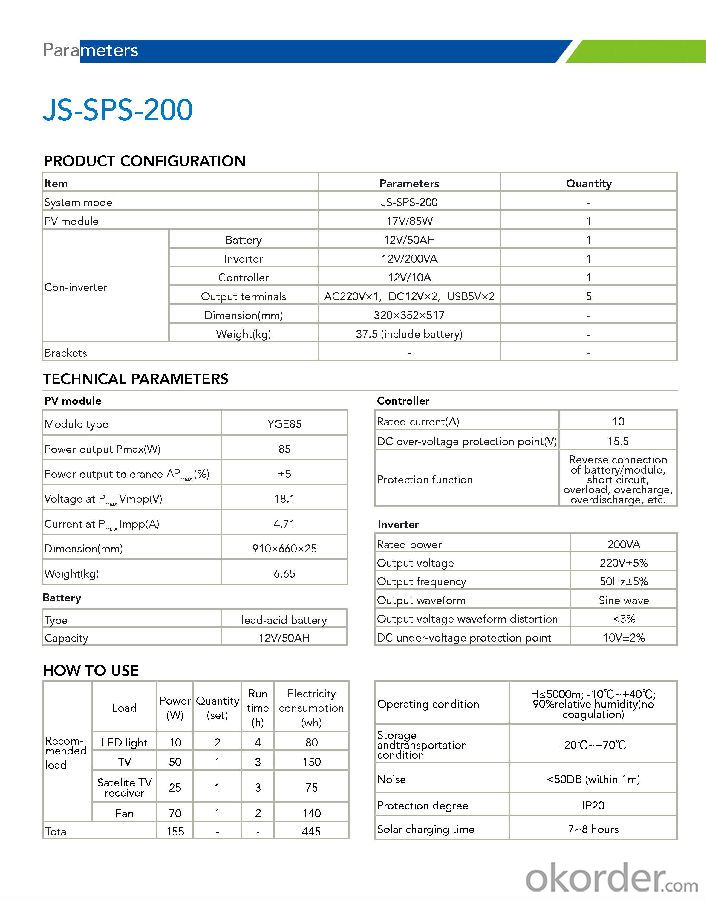
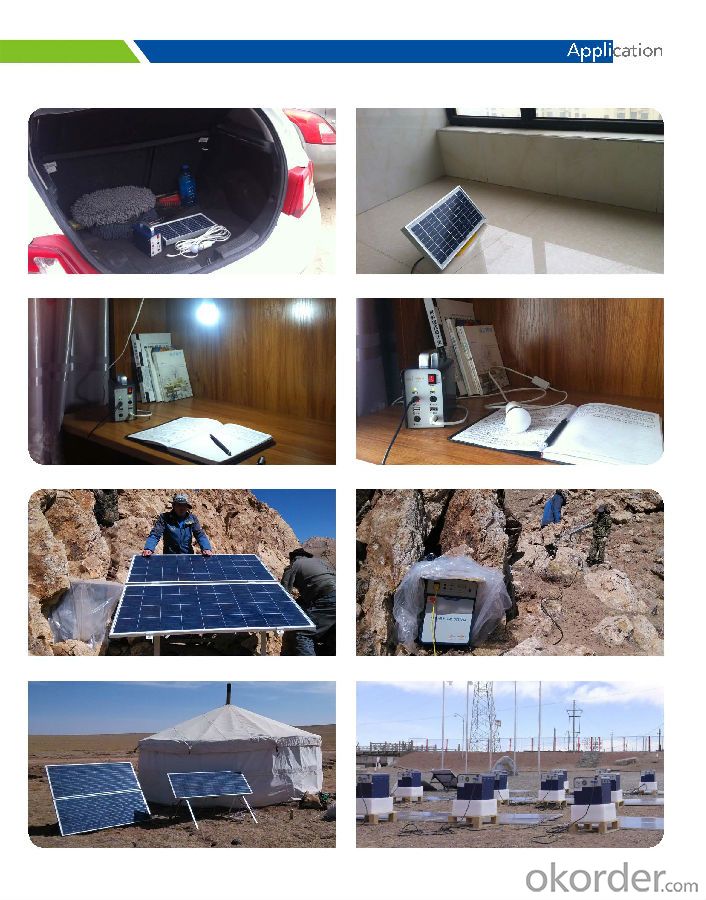
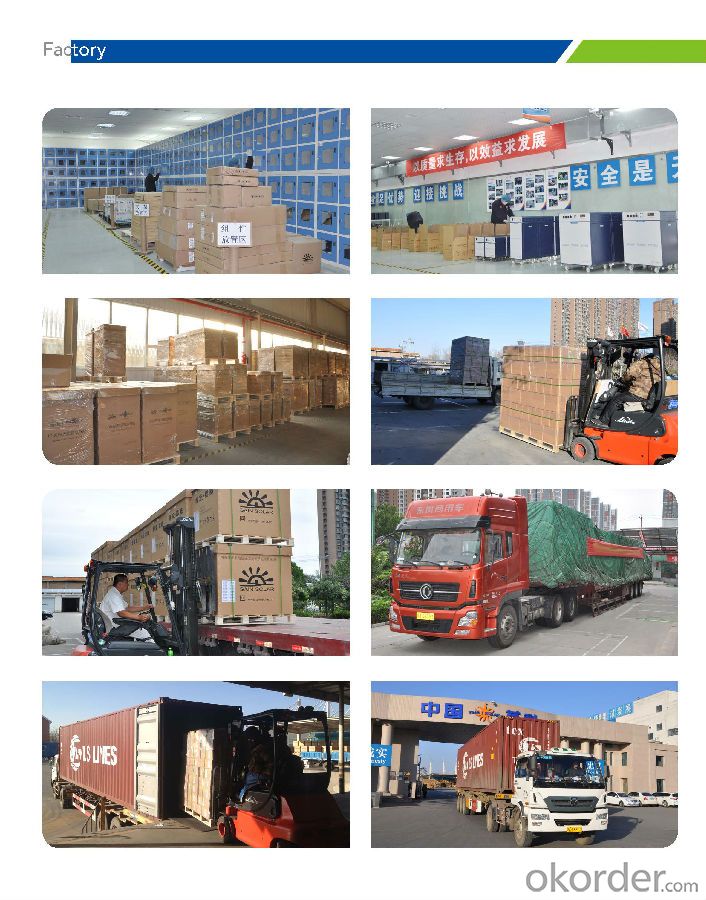
- Q: How does the installation of solar panels affect the building's resale value?
- A building's resale value can be positively affected by the installation of solar panels. Solar panels are regarded as a valuable addition to a property due to the multiple benefits they offer. To begin with, potential buyers find solar panels highly appealing as they can significantly reduce or even eliminate electricity bills. This feature is attractive and can make a property more enticing, ultimately increasing its market value. Furthermore, the current concerns surrounding climate change and the growing interest in sustainable living make solar panels a desirable feature that aligns with eco-conscious values. Additionally, solar panels have the potential to generate income through net metering programs. In certain regions, surplus electricity generated by solar panels can be sold back to the grid, creating an additional source of revenue. This financial advantage enhances the value of a property and attracts buyers who are interested in investing in renewable energy. Moreover, the installation of solar panels contributes to the overall energy efficiency of a building. This leads to improved energy performance ratings and certifications, such as LEED or Energy Star, further boosting the resale value of the property. Nevertheless, it is crucial to note that the impact on resale value can vary depending on factors such as the property's location, local housing market trends, and the size and quality of the solar panel system. It is advisable to seek guidance from real estate professionals or appraisers experienced in evaluating the impact of solar panels on property values in a specific area.
- Q: Are solar energy systems affected by hail or other weather conditions?
- Yes, solar energy systems can be affected by hail or other extreme weather conditions. Hailstorms can potentially damage solar panels, reducing their efficiency or causing them to break. Additionally, severe weather conditions such as heavy rain, snow, or strong winds can affect solar energy production temporarily. However, modern solar panels are designed to withstand such weather events to a certain extent and are often tested for durability and impact resistance.
- Q: Can solar energy systems be used for emergency backup power during power outages?
- Yes, solar energy systems can be used for emergency backup power during power outages. Solar panels can generate electricity even when the grid is down, as long as they are connected to a battery storage system. This allows homeowners or businesses to store excess solar energy during the day and use it during an outage. It provides a reliable and sustainable alternative to traditional backup generators, reducing dependence on fossil fuels and ensuring continuous power supply during emergencies.
- Q: Are solar energy systems suitable for agricultural applications?
- Yes, solar energy systems are suitable for agricultural applications. They provide a sustainable and reliable source of power for various agricultural operations such as irrigation, livestock management, and powering machinery. Solar energy systems can help reduce dependence on fossil fuels, lower operating costs, and contribute to a more environmentally friendly farming practice.
- Q: How do solar energy systems handle power outages?
- Solar energy systems do not provide power during a power outage. However, systems that are connected to the grid can have battery storage or backup generators to provide electricity during such situations. Standalone solar systems with battery storage can also provide limited power during an outage, depending on the capacity of the batteries.
- Q: Can solar energy systems be used in areas with limited access to healthcare?
- Yes, solar energy systems can certainly be used in areas with limited access to healthcare. Solar energy can power medical equipment, refrigeration systems for vaccines and medicines, lighting in healthcare facilities, and even provide electricity for telemedicine services. Implementing solar energy systems in such areas can help overcome the lack of reliable electricity supply, thereby improving healthcare access and delivery.
- Q: Can solar energy systems be used in conjunction with battery storage?
- Yes, solar energy systems can be used in conjunction with battery storage. This allows excess solar energy generated during the day to be stored in batteries for later use when the sun is not shining, such as during the night or during cloudy days. Battery storage enables a more reliable and consistent supply of electricity from solar energy, increasing energy independence and resilience.
- Q: What is concentrated solar power (CSP)?
- Concentrated solar power (CSP) is a renewable energy technology that utilizes mirrors or lenses to concentrate sunlight onto a receiver, which converts the solar energy into thermal energy. This thermal energy can then be used to generate electricity or stored for later use. CSP systems are typically large-scale and can provide reliable and clean power, even during periods of low sunlight.
- Q: Are there any ongoing monitoring requirements for solar energy systems?
- Yes, there are ongoing monitoring requirements for solar energy systems. Monitoring is essential to ensure that the solar energy system is operating efficiently and effectively. It helps in identifying any potential issues or malfunctions, allowing for timely repairs or maintenance. Ongoing monitoring typically involves tracking the system's performance, including energy production, system uptime, and any deviations from expected outputs. This can be done through various monitoring tools and technologies, such as real-time monitoring software, data loggers, or remote monitoring systems. Additionally, some jurisdictions or incentive programs may have specific monitoring requirements to ensure compliance with regulations or eligibility criteria. Regular monitoring helps maximize the benefits of solar energy systems and ensures their long-term performance and durability.
- Q: How do solar energy systems impact energy independence?
- Solar energy systems can greatly contribute to energy independence by reducing reliance on fossil fuels and the traditional energy grid. By harnessing the power of the sun, individuals and communities can generate their own clean and renewable energy. This reduces the need to import energy from other sources and helps to decrease dependence on centralized power systems. Solar energy systems provide a sustainable and decentralized alternative, empowering individuals and communities to take control of their energy production and reduce their carbon footprint.
Send your message to us
Solar Energy Systems Carlisle JS-SPS-200 Off-Grid Solar Power System
- Loading Port:
- Tianjin
- Payment Terms:
- TT OR LC
- Min Order Qty:
- 10 set
- Supply Capability:
- 10000 set/month
OKorder Service Pledge
OKorder Financial Service
Similar products
Hot products
Hot Searches
Related keywords
